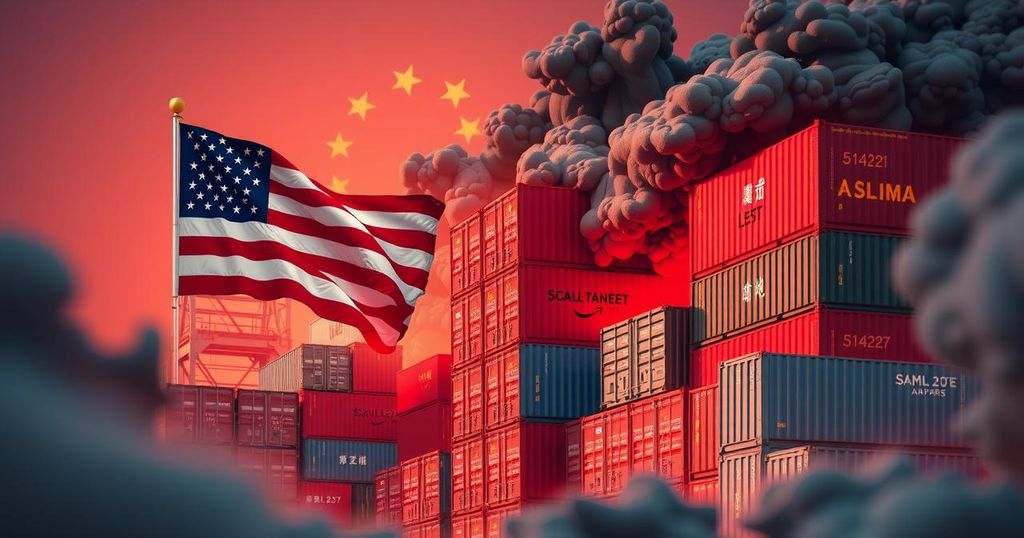China Responds to US Tariff Hikes, Criticizing Economic Impact and Global Stability
China condemned the U.S. decision to raise tariffs on Chinese imports, claiming it exacerbates trade conflicts and damages U.S. consumer interests. The U.S. aims to support domestic manufacturing and reduce reliance on China, maintaining that the tariff increases will ultimately benefit American sectors impacted by competition from Chinese products. Both countries continue to clash over trade practices, as their economic tensions deepen amidst ongoing disputes.
On Monday, Beijing responded to the United States’ decision to increase tariffs on various Chinese imports, characterizing this initiative as compounding existing errors. The U.S. Trade Representative’s office announced tariffs on solar panel components, which are set to rise significantly next month. U.S. Trade Representative Katherine Tai indicated that these tariffs were intended to address detrimental practices by China, reinforcing domestic manufacturing competitiveness in light of perceived overreliance on Chinese goods.
The planned tariff increases will see rates for solar wafers and polysilicon doubled to 50 percent, with certain tungsten products facing tariffs that will increase from zero to 25 percent. Beijing’s commerce ministry expressed strong opposition to these measures, asserting that they will adversely impact U.S. consumers and fail to alleviate the U.S. trade deficit. The ministry further contended that the tariffs undermine global trade stability and security in industrial supply chains, urging the U.S. to rescind these tariffs and suggesting that China would take necessary actions to protect its interests.
The history of U.S.-China trade relations is marked by disputes and tariffs. Former President Donald Trump initiated a trade war with China during his term, leading to substantial tariff increases. President Joe Biden has continued a selective tariff strategy without reversing Trump’s tariffs, echoing sentiments from the trade representative’s office which stated that the new tariffs aim to bolster domestic clean energy investments and manufacturer competitiveness against China’s vast production capabilities.
The U.S. Trade Representative’s office has portrayed these tariff increases as essential measures to ensure national security and to aid U.S. industries under threat from Chinese imports. China, on the other hand, has consistently rejected claims regarding its overproduction and asserted that unilateral tariff policies from the U.S. are not conducive to equitable trade relations.
Overall, the unfolding tariff escalation presents a significant point of contention between two major economic powers, revealing the complexities of international trade policy and economic strategy.
The recent decision by the United States to increase tariffs on Chinese imports comes amid an ongoing trade dispute that has persisted over several years. Tariffs have been a critical tool in U.S. trade policy, intended to address trade imbalances and competitive disadvantages felt by American industries. The Chinese government has historically viewed these tariffs as unilateral measures that disrupt fair trade and have consistently opposed them. The dynamics between the two nations illustrate a broader struggle regarding trade practices, economic security, and global market stability.
In conclusion, the planned U.S. tariff hikes on specific Chinese imports have sparked a strong response from Beijing, emphasizing the contentious nature of U.S.-China trade relations. Chinese officials argue that these tariffs will not resolve trade deficits but instead harm American consumers and exacerbate inflation. As both nations navigate these turbulent economic waters, the long-term implications for global trade stability and economic cooperation remain uncertain, warranting close observation from the international community.
Original Source: www.barrons.com








Post Comment